
Georgios Oikonomou
A description of my project
Amine-based chemical absorption is a mature technology currently utilized for industrial scale CO2 capture, however there are remaining issues limiting its efficiency. Degradation of the amine solvent is the primary problem, as it is responsible for amine loss, decreased absorption capacity, and equipment corrosion. Despite extensive studies on degradation mechanisms, there is still uncertainty regarding the effects of degradation within the process and the most effective mitigation strategies. One key point of investigation is the correlation between degradation and corrosion. Some degradation products are known to be corrosive, while study results indicate that corrosion is also a cause of increased oxidative degradation in the absorption system.
This work aims to improve current understanding of the parameters affecting degradation and corrosion in CO2 capture plants. Specifically, it focuses on the investigation of degradation mechanisms and corrosion rates of amine solvents, while monitoring the effect of process parameters (e.g. operating temperature). In addition, an important objective of this work is the identification of promising inhibitors that can effectively mitigate degradation and corrosion.
Why I chose this project and the associated institute
I find this research topic particularly interesting, as it offers the opportunity to combine lab work with modelling and simulation, while working towards improving CO2 capture processes. NTNU is among the leading institutions in CCS and I am very excited to contribute to its research efforts.
In my spare time I enjoy…
In my spare time I enjoy playing basketball and board games. Also, for me, moving to Norway has been a motivator to try new activities, and I like going hiking or skiing whenever I have the opportunity.
What I’m looking forward to as part of the MISSION-CCS Doctoral Network
The MISSION-CCS network provides a valuable opportunity to develop my skills by participating in various workshops, but also by collaborating with doctoral candidates from different disciplines. I look forward to doing impactful research in the field of CCS, while connecting with other researchers and professionals from the industry.
My LinkedIn profile : www.linkedin.com/in/georgios-economou-02b710274
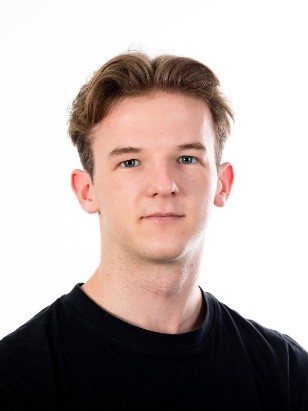
Ward Peeters
A description of my project
Solvent based CO2 capture has shown to be scalable for removal of million tons of CO2 per year from large industries. Control of the capture plant requires deep knowledge of solvent health, to understand if the right amount of makeup and water balance is maintained.
Impurities coming from the upstream industrial processes accumulate in the scrubber and over time these components build up in the solvent. The consequence is a reduced solvent performance.
The aim of this work is to develop a device which would allow for online collection of corrosion from CO2, impurities, heat stable salts and other components. This could be an inline electrochemical unit combined with infrared measurements or a sample system allowing for regular information collection. The systems would require input of big-data and automatic analysis of spectra to know the content of impurities, solvents, etc.
New solvents often consist of more than one amine. When two or more amines are used it becomes very difficult to control the content of the solvent. A unit developed in this work will allow for detailed solvent management.
The unit will be tested in connection to ongoing pilot work being performed at DTU which includes mixed solvent.
Why I chose this project and the associated institute
I did my master thesis at DTU as an Erasmus program in carbon capture. Therefore the choice to go further in this subject in this unique opportunity was quickly made.
In my spare time I enjoy…
Playing volleyball, going to the gym and cycling.
What I’m looking forward to as part of the MISSION-CCS Doctoral Network
To contribute to a better understanding of solvent degradation and corrosion in carbon capture plants. Besides that I hope to broaden my network by collaborating with other DCRs.
My LinkedIn profile : https://linkedin.com/in/wardpe
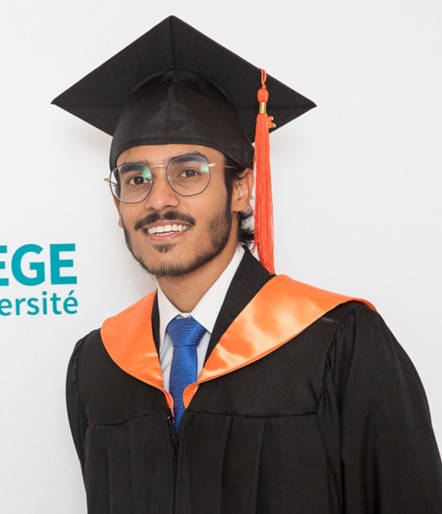
Proneet Ghosh
A description of my project
This PhD project is a part of a work package dedicated to the relationship between capture plant corrosion and solvent degradation which will be explored when both processes occur concomitantly in the same system in the presence of impurities. Such work will be supported through controlled studies into both solvent degradation and corrosion to identify degradation pathways and corrosion rates/mechanisms, respectively. The originality of the proposed work lies not only within the simultaneous laboratory study of both phenomena, but in the development and/or evaluation of new or existing techniques to control solvent degradation and corrosion.
The project DRC3 will explore in-situ electrochemical methods for corrosion measurement (e.g. electrochemical impedance spectroscopy and electrical resistance). A range of ex-situ analyses (e.g. nano-tomography, X-ray diffraction, focused ion beam, mercury intrusion porosimetry) will be explored in order to characterize the corrosion products and their structure. DCR3 will perform corrosion experiments (developed during Leeds and Bradford Boiler Company Limited secondment) in controlled, systematically degraded amine solvents (liaising with DCR1) to achieve a fundamental understanding of corrosion product formation to link degraded solvent chemistry to corrosion behaviour. DCR3 will explore the novel concept of how the solvent chemistry can be chemically ‘tuned’ to support the formation of protective corrosion products, thus providing a unique method of preservation of capture infrastructure. These strategies will be validated/optimised at Pilot Scale (Denmark Technical University secondment).
Why I chose this project and the associated institute
I chose this PhD project because I was always very fascinated with the technology of Carbon capture systems and my aim is to become a scientist in the field of sustainable technologies and in Material sciences. I think this opportunity is the stepping stone for my ultimate aim and as INSA Lyon is one of the top universities in Europe, I believe this will help me to excel in my research studies because the cutting edge technology/equipments available here, the level of exposure I will get here to meet and exchange ideas with various technological experts and partners is a huge opportunity for any researcher like me.
In my spare time I enjoy…
In my spare time, I enjoy sketching, hiking, bicycling, and exploring/visiting new places with my friends, etc.
What I’m looking forward to as part of the MISSION-CCS Doctoral Network
I am looking forward to research and study in the given framework of my DCR3 PhD project with the help of the guidance of my various supervisors and peers in this doctoral network. Even my teammates are working on their own projects which are coherent to mine so discussing with them and taking inspiration from one another will be a great help in this whole project as we all come under the MISSION-CCS team and we all share a same goal that is “Material Science Innovation for Accelerated, Sustainable and Safe Implementation of Carbon Capture and Storage”.
My LinkedIn profile : https://www.linkedin.com/in/proneet-ghosh/
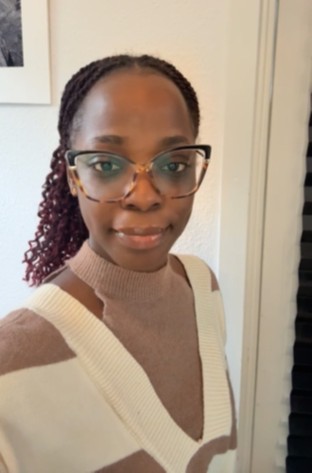
Davies Oluwadabobomi O. Grace
A description of my project
My PhD project, under the DCR4/Marie Skłodowska-Curie MISSION-CCS program, focuses on understanding amine carry-over and impurity effects on localised corrosion in supercritical CO2 (sc-CO2) transport systems used in Carbon Capture and Storage (CCS). As CCS infrastructure scales up across Europe, ensuring the integrity of CO2 pipelines becomes essential. Impurities such as water, amines, nitrosamines, NO2, SO2, CO, and NH3 often carried over from the capture process pose a significant risk to pipeline materials through corrosion. This project investigates how these trace impurities affect the rate and nature of corrosion under high pressure, supercritical CO2 conditions. The goal is to identify key degradation mechanisms, quantify corrosion risks, and evaluate material performance under realistic operating environments. This includes experimental testing in lab-scale setups simulating pipeline conditions, material characterization, and surface analysis techniques.
Why I chose this project and the associated institute
I chose this project because it aligns with my passion for carbon capture. Pursuing my PhD at DTU under Prof. Philip Fosbøl and Dr. Randi Neerup, while collaborating with the University of Leeds, Wood Group, and IFE, is a unique opportunity. MISSION-CCS will shape me into an excellent researcher through expert guidance, secondments, workshops, and networking.
In my spare time I enjoy…
In my spare time, I enjoy traveling and have visited 16 countries so far, with many more on my list. I'm also passionate about fitness and spend a lot of time at the gym. Outside of that, I enjoy creating social media content and reading educative books.
What I’m looking forward to as part of the MISSION-CCS Doctoral Network
I look forward to deepening my knowledge of CCS and gaining hands-on experience with cutting-edge technologies and analytical techniques. I'm also excited about the networking opportunities, secondments, and workshops offered through the MISSION-CCS Doctoral Network, which will help me become a well-rounded researcher in corrosion and carbon capture technology.
My LinkedIn profile: https://www.linkedin.com/in/daviesgrace
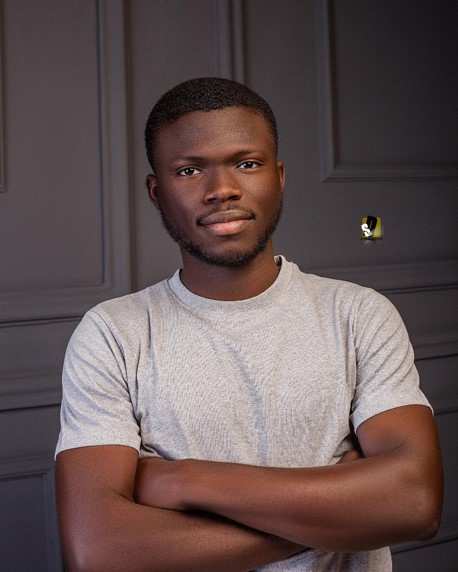
Bunmi Adeleke
A description of my project
This project entails the development of a reactor capable of maintaining impure CO2 stream composition for prolonged periods, as well as generating hydrodynamic conditions translatable to pipeline transportation. This system will be integrated with fabricated Electrical resistance sensors of high sensitivity and accuracy, consisting of probes of various dimensions and thicknesses in order to measure and quantify general and localised corrosion in-situ, and in real time. The use of the Electrical Resistance sensor and other methods will enable the degradation mechanisms (general/localised) to be further understood and identify the dominant impurities responsible for degradation in each impure CO2 stream composition evaluated.
Why I chose this project and the associated institute
This project provides me with the opportunity to delve deeper into corrosion science, a subject I am highly passionate about, at INSA Lyon, one of France's top engineering schools.
In my spare time I enjoy…
Singing and playing the Piano or the Guitar
What I’m looking forward to as part of the MISSION-CCS Doctoral Network
Success of every aspect of the project and new discoveries in carbon capture and storage.
My LinkedIn profile: https://www.linkedin.com/in/bunmi-adeleke-b5336916b/
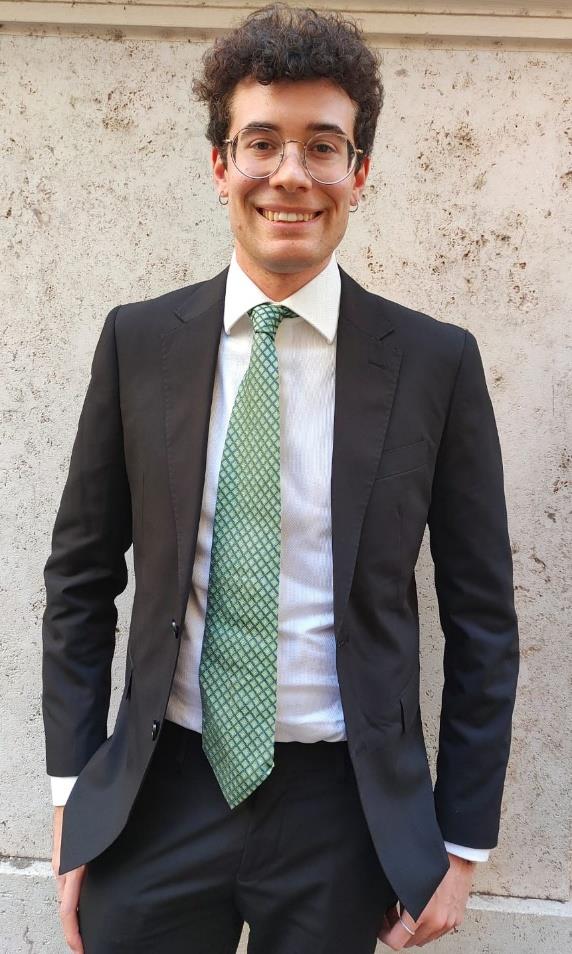
Ettore di Sabato
A description of my project
The PhD project DRC6 investigates the performance of newly developed corrosion-resistant alloys (CRAs) in transportation and injection conditions, particularly examining their tolerance to impurities. This study, supported by materials from Alleima Tub AB in Sweden and selection insights from OGC Energy Ltd in the UK, will compare CRA performance with that of corrosion inhibitors specifically formulated for carbon steel in dense-phase CO2 environments, with inhibitors provided by Baker Hughes Energy Transition LLC in the USA. The research culminates in large-scale validation at TotalEnergies in France. The work will involve identifying suitable testing and characterization techniques to assess the performance of carbon steel and CRA materials in supercritical CO2 environments, emphasizing electrochemical methods. Additionally, it will focus on developing methodologies for inhibitor evaluation under dense-phase and aqueous CO2 conditions, utilizing mass loss, electrical resistance, and electrochemical measurements. The project will further explore CRA passive film stability and material performance in downhole aqueous environments and evaluate inhibitor efficiency while analyzing adsorption kinetics. Ultimately, the study aims to create performance maps and guidelines to inform material and inhibitor selection for dense-phase transport and injection scenarios.
Why I chose this project and the associated institute
After completing a Specializing Master in Metallurgy 4.0, I chose this project as an opportunity to apply my knowledge to corrosion research—a field with broad implications from civil engineering to cultural heritage conservation. I am thrilled to be part of a prestigious engineering school like INSA Lyon, where I’ll have access to the innovative, interdisciplinary resources of the Mateis laboratory. At the same time, I’m excited to experience Lyon itself, a vibrant and culturally dynamic city that offers a wealth of activities to explore in my free time.
In my spare time I enjoy…
I am convinced that an interdisciplinary education is essential for addressing future challenges. In my spare time, I explore both haute pâtisserie and archaeology, focusing on the chemistry of baking and leaving, as well as the characterization of archaeological materials.
What I’m looking forward to as part of the MISSION-CCS Doctoral Network
During these three years of my PhD, I am eager to contribute to the MISSION-CCS by studying corrosion inhibitors. At the same time, the topic of CO2 storage is especially stimulating due to its central role in government policies. I’m excited to help advance this essential technology, which supports ongoing industrial development with a focus on environmental sustainability.
My LinkedIn profile : https://www.linkedin.com/in/ettore-di-sabato-171779220
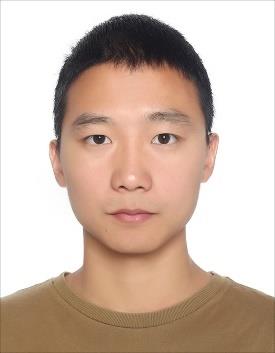
Ding Xiong
A description of my project
This project will investigate the long-term effects of impure CO2 injection on the formation integrity through core flood or batch reaction tests. Ex-situ analysis of core samples (tomography, microscopy, etc.) will be used before and after the tests to inspect the change in core samples after long-time fluid-rock interaction. The geochemical effects caused by impure CO2, especially SOx, NOx, and amine carry-over, will be detected by analyzing the effluent. Bespoke reactive-transport modelling will be used to interpret the core flood or batch reaction results, and reservoir simulation coupled with geochemical reactions will be used to provide scaled-up analysis for the near-wellbore region. The expected results include core flood tests for long-time impure CO2 injection, detailed analysis of the effects of SOx, NOx, amine carry-over on reservoir core in terms of geochemical reactions and surface effects, and finally, reactive-transport modelling of the interactions between impure CO2 and reservoir rock under multiphase flow at the core plug scale and the near wellbore scale.
Why I chose this project and the associated institute
The research topic is relatively new, with many unresolved issues, making it a promising area for providing valuable guidelines for field applications. DTU is an outstanding university in CCS research, where I can fully dedicate my passion to advancing the field.
In my spare time I enjoy…
Skiing, tennis, swimming, and photography
What I’m looking forward to as part of the MISSION-CCS Doctoral Network
I hope to leverage creativity to successfully complete the program and inspire a passion for exploring new directions in research
My LinkedIn profile :
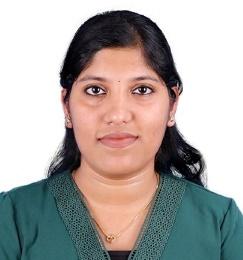
Arshitha Mathew
A description of my project
Carbon capture and storage (CCS) is a promising strategy to reduce atmospheric CO2 levels, with long-term security relying on caprock integrity. While research has primarily focused on brine interactions, the effects of impurities in the CO2 phase remain underexplored. Understanding how SOx, NOx, and amines alter reservoir and seal properties over time is crucial. My project “In-situ X-ray Computed Tomography for the evaluation of caprock integrity” aims to address this gap by investigating the impact of impure CO2, including its water-saturated and brine containing phases, on the chemical and physical properties of cap rock seals. As part of the MISSION-CCS initiative, our research focuses on investigating the long-term structural and mechanical effects of CO2 in its liquid or supercritical phase on rocks. We employ state-of-the-art techniques, including Electron Backscatter Diffraction (EBSD), Energy Dispersive Spectroscopy (EDS), particle analysis, diffraction, Computed Tomography (CT) scanning, and nanoscale analysis of exposed samples. Another key goal is modelling multiscale CO2 permeability as a function of exposure time using big data and machine learning in collaboration with MISSION-CCS partners. This integrative approach will provide critical insights into the long-term sustainability of CCS technologies. Additionally, secondments at Equinor for in-situ measurements of sealing rocks and at the University of Leeds to analyse microstructural changes in caprock will support in attaining the defined objectives.
Why I chose this project and the associated institute
With a deep-rooted passion for physics and electrochemistry, I see this project as a unique opportunity to expand my expertise in these domains. What intrigues me even further is the potential of X-ray computed tomography. Understanding its complexities and applying its capabilities to analyse caprock porosity and microstructural evolution is truly exciting. Moreover, I feel honoured to be part of the MISSION-CCS project to collaborate with various leading research institutions and industries, facilitating international travel. Being at the forefront of carbon capture and storage (CCS) initiatives, Norway provides an ideal environment for advancing research in this critical field. Equally motivating is my choice to pursue research at the Norwegian University of Science and Technology (NTNU). I was particularly drawn to its dynamic research culture, especially within the X-ray Physics Group. I am certain that this experience will mark a significant milestone in my academic and professional journey.
In my spare time I enjoy…
In my spare time, I enjoy playing badminton and listening to music, which helps me stay active and clear my mind. For me, cooking and having favourite food is a delight as it rejuvenates me outside of research. Also, occasional hikes with friends, enjoying the scenic views, are a great stress buster.
What I’m looking forward to as part of the MISSION-CCS Doctoral Network
Being part of the MISSION-CCS Doctoral Network, I am enthusiastic to collaborate with leading researchers to explore innovative solutions for carbon capture and storage. The opportunity to access extensive research lab facilities around the globe is equally exciting. Additionally, networking with other doctoral researchers and industry partners through workshops and secondments will be invaluable in expanding my knowledge and career opportunities. I look forward to gaining interdisciplinary skills and achieving deliverables within the planned timeline strengthening my growth as a high-quality researcher.
My LinkedIn profile: https://www.linkedin.com/in/arshitha-mathew-608b37212
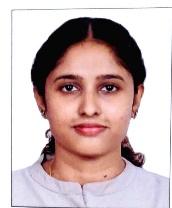
Soumya Pallipotta
A description of my project
My project comes under the work package on Well Integrity and Storage, specifically focused on "In-Situ X-ray Tomography for the Evolution of Casing Cement and Cement Formation Interfaces." Ensuring wellbore integrity is critical for the safety of Carbon Capture and Storage (CCS) systems. One of the major concerns is corrosion at the cement and casing (steel) interface, which can arise due to carbonation, diffusion, and other electrochemical reactions. My research will focus on studying the causes, types, extent of corrosion, on identifying mitigation strategies. A central theme of my research will be the development of in-situ 3D tomographic methods to study the structural changes in the cement and steel casing induced by impure brine/CO2 under realistic reservoir conditions (pressure, temperature). We expect the developed experimental methodology will enable us to understand the chemical reactions at the cement-steel interface, including the evolution of the porous network, observation of phase transformation e.g. supercritical – liquid CO2. In addition, the planned secondments will facilitate the achievement of specific objectives, including testing and characterizing cement chemistry, composition, structure, and rheology in well environments at SLB, as well as the development of methodologies for electrochemical monitoring of casing within cement at the University of Leeds (UNIVLEEDS).
Why I chose this project and the associated institute
My strong interest in electrochemistry and microscopy, combined with the fascinating potential of X-ray tomography, makes the MISSION-CCS project a perfect fit. Norway's leadership in CCS research and its healthy work-life balance along with NTNU's vibrant research environment, inspire me to advance my career in this futuristic and collaborative field of work.
In my spare time I enjoy…
I am an outdoor enthusiast who enjoys staying connected with nature. On weekends or holidays, I often go hiking or have a picnic to unwind. In my leisure time, I also enjoy reading self-help books and doing pencil sketching. When I experience stress, I find comfort in preparing and enjoying a delicious meal.
What I’m looking forward to as part of the MISSION-CCS Doctoral Network
The MISSION-CCS network represents a significant project for me. It provides an excellent platform to connect with professionals from leading universities and industries, fostering collaboration and enhancing the enthusiasm of every DCR to continuously improve. The inclusion of workshops and secondments in this project is academically beneficial as well as offering a chance to explore different countries. I am committed to meeting all the deliverables within the project timeline and believe that this network will shape me into a more productive researcher by elevating my skills to a much higher level.
My LinkedIn profile : https://www.linkedin.com/in/soumya-pallipotta-168229203
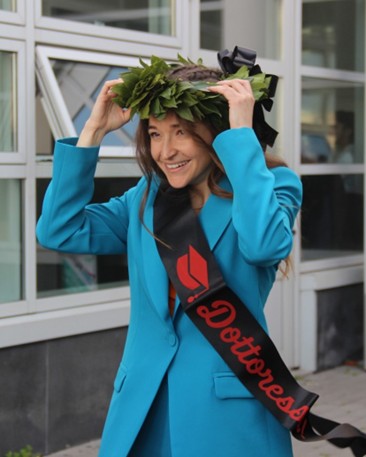
Benedetta Martellotti
A description of my project
Over the past decade, significant research has enhanced our understanding of the techno-economics and lifecycle emissions associated with carbon capture and storage (CCS) technologies. While this work has identified essential policies and economic frameworks for large-scale deployment and explored various capture methods, a critical gap remains: limited analysis of uncertainties in key engineering components—such as solvent degradation, corrosion, and reservoir deterioration—and their effects on performance at the plant scale. Addressing these uncertainties is vital for optimizing future CCS designs.
This PhD thesis aims to fill this gap by integrating outputs from partners in the MISSION-CCS project into comprehensive techno-economic analysis (TEA) and lifecycle analysis (LCA) models. Initially, I will review existing CCS models to evaluate their capability in assessing different contaminant management strategies. Collaborating with fellow researchers through online meetings and structured secondments, I will develop functional relationships to incorporate insights from their findings. As new data becomes available, these relationships will be refined to enable a thorough evaluation of the TEA and LCA impacts of various contaminant mitigation strategies. Ultimately, this research will improve our understanding of CCS system performance and inform the design of future industrial-scale systems in Europe.
Why I chose this project and the associated institute
I chose this project because it perfectly combines my engineering passions: lifecycle assessment (LCA) and carbon capture and storage (CCS). INSA Lyon, as one of France’s top engineering schools, provides the ideal environment for advancing my research, along with the chance to learn French and expand my cultural horizons.
In my spare time I enjoy…
What I enjoy the most is exploring new places and immersing myself in diverse cultures, particularly by capturing them through photography. In my free time, I’m passionate about climbing and hiking, and as an extremely curious and creative person, I love to try a new activity every day.
What I’m looking forward to as part of the MISSION-CCS Doctoral Network
I’m excited to help combat climate change through my research in CCS and to collaborate with experts from different countries in Europe. This network will provide valuable learning opportunities, allowing me to gain knowledge and work on effective, sustainable solutions with other researchers who share my passion for protecting the environment.
My LinkedIn profile : https://www.linkedin.com/in/benedettamartellotti/
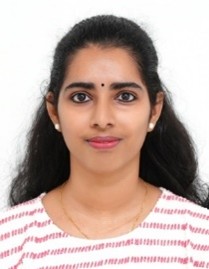
Rithuparna Rajesh
A description of my project
The implementation of carbon capture and storage technologies necessitates long-term wellbore integrity to prevent CO2 leakage back into the atmosphere. Studies have highlighted that a potential critical point of “failure” is related to the carbonation reactions associated with casing cement as well as the external integrity of the casing itself. CO2 leakage through the annulus is reported to occur much more rapidly than geological leakage through the formation rock, leading to economic loss, reduction of storage efficiency and compromise of the storage location. The potential for such leaks raises considerable concern regarding long-term wellbore isolation, and the durability of hydrated cement. To facilitate the safe sequestration of CO2, it is crucial that the casing structure (both cement and steel) of the wellbore maintain structural integrity over geological times. To this end, my PhD project aims to mechanistically understand processes at the cement-steel interface in realistic conditions that might prevail during the planned lifetime of such downhole environments. With the help of electrochemical sensing technology performed in autoclaves for steel embedded in different cement types, coupled with advanced synchrotron and/or lab-based characterisation techniques such as, micro and nano-X-ray Computed Tomography, X-ray Absorption Spectroscopy, Transmission Electron Microscopy and Scanning Electron Microscopy, the corrosion of steel and its influence on the surrounding cement will be studied. This project will also investigate the capture/interaction of CO2 within the surrounding cement matrix using X-Ray Diffraction, thermogravimetric analysis, and Scanning Electron Microscopy, to simulate events of leakage.
Why I chose this project and the associated institute
My research experience at IIT Madras has solidified my interest in corrosion-related research, particularly in the context of concrete structures. Through my involvement in multiple condition assessment projects, I have observed the detrimental effects of corrosion on the safety and serviceability of concrete structures. Carbonation-induced corrosion being the primary reasons for the compromise of structural integrity of CO2 storage wells motivates me to continue research in this area. What excites me further is the opportunity to understand deeper about the chemistry of well cements and the electrochemical processes at the cement-steel interface in simulated conditions of downhole wellbore environments.
Pursuing PhD at the University of Leeds would be a great opportunity for me to broaden my knowledge through collaboration with researchers from diverse backgrounds, access to its outstanding laboratory facility and the benefit of excellent mentorship. This experience will be invaluable for my future teaching career in a leading university, where I plan to both teach and continue research on the durability of concrete structures.
In my spare time I enjoy…
I have been a sports enthusiast since my school days and represented my school Kho Kho (a traditional Indian sport) team at the CBSE National level. In my spare time, I enjoy playing badminton and swimming, and I’m a fan of watching cricket and tennis. Beyond sports, I love to explore different cultures and cuisines through cooking and travel.
What I’m looking forward to as part of the MISSION-CCS Doctoral Network
I would like to develop my communication skills and build a strong network with researchers and industrial partners. I believe that the network training events and secondment activities that are planned as a part of this program will help me hone my research and interpersonal skills. The experience of working with a team of researchers in the MISSION-CCS network and engaging in knowledge transfer activities would aid me in building a successful teaching career and disseminating the knowledge gained.
My LinkedIn profile : https://www.linkedin.com/in/rithuparna-r

Sumia Manzoor
A description of my project
Additive manufacturing techniques are employed to fabricate components with notable cost, lead time, and environmental benefits for the industry. The use of corrosion resistant alloys (CRAs) is necessary in CCS infrastructure; however, their long-term application may be limited due to the presence of impurities and potential for corrosion. One of the key advantages of additive manufacturing is the ability to repair damaged or worn components, extending their life at significantly reduced cost compared to a full replacement.
Despite the unique advantages of additive manufacturing, understanding the corrosion behaviour of these components is essential for broader adoption of the techniques. This interdisciplinary PhD project aims to establish a comprehensive understanding of the corrosion behaviour of additively manufactured metals in aqueous environments containing CO2, typical of CCS infrastructure. To date, there is limited understanding of how additively manufactured CRAs (stainless steels and nickel-based alloys) perform under the aggressive conditions of CCS applications. Furthermore, there are no studies that explore the effect of impurities on additively manufactured CRAs, which this study will address. By performing studies under conditions representative of CCS facilities, the feasibility of utilising additively manufactured metals for these applications will be assessed.
Why I chose this project and the associated institute
As a chemical engineering graduate with experience in testing additively manufactured metals and sustainable materials for CCS, this project at the University of Leeds perfectly combines my diverse background. It allows me to apply my expertise in testing additive manufactured metals while exploring corrosion challenges in carbon capture infrastructure, aligning with my passion for innovative materials and sustainability.
In my spare time I enjoy…
I enjoy variety of activities of different natures such as baking, calligraphy, henna art and playing badminton. As a person with curious and versatile nature, I appreciate the opportunity to learn and experience different things, whether it's exploring new skills, engaging in creative pursuits, or staying active.
What I’m looking forward to as part of the MISSION-CCS Doctoral Network
As part of the MISSION-CSS, I look forward to working alongside an exceptional group of researchers and experts from both academia and industry across Europe. This collaborative network offers an integrated and invaluable learning experience, providing opportunities to deepen our expertise in our research areas and make a positive impact in the field.
My LinkedIn profile : linkedin.com/in/sumia-manzoor-55b169177
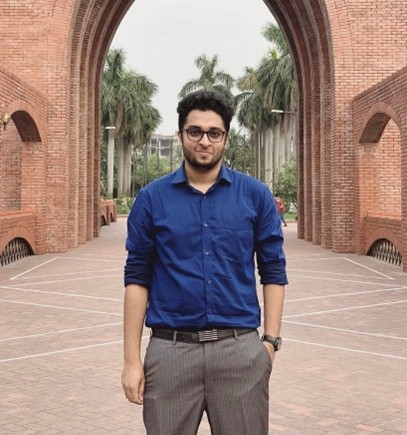
Md Sakib Hossain
A description of my project
This project will use lifecycle analysis (LCA) and optimisation techniques to investigate how the negative environmental effects of CCS can be minimised without overly impacting on costs or efficiency. The first phase of the work will use established LCA and Techno-Economic Analysis (TEA) techniques to develop parameterised models of the efficiency, cost-effectiveness and sustainability of using candidate chemical components within key sub-systems along the CCS process chain. In a second phase, the project will develop and implement a multi-objective optimisation framework that enables competing commercial, performance and sustainability trade-offs to be analysed. The final phase of the project will draw on the previous outputs to identify optimal process and chemical choices.
Why I chose this project and the associated institute
I chose this project because it aligns with my expertise in system modelling and optimization, TEA, LCA and sustainable energy technologies. The University of Leeds is a leader in sustainability research, and MISSION-CCS offers a multidisciplinary approach, providing the ideal environment to develop innovative solutions for decarbonization.
In my spare time I enjoy…
In my spare time, I enjoy hiking, listening to quality music and occasional nature photography. These hobbies help me reconnect with nature and refresh my mind to focus better on my targets.
What I’m looking forward to as part of the MISSION-CCS Doctoral Network
I am excited to apply my expertise in system modelling, optimization, TEA, LCA, and sustainable energy technologies to advance CCS research. The MISSION-CCS network offers an excellent platform for knowledge exchange, industrial partnerships, and interdisciplinary research, helping me contribute to sustainable decarbonization while developing my academic and professional skills.
My LinkedIn profile : https://www.linkedin.com/in/mdsakibhossain/

The Great Outdoors
Lorem ipsum dolor sit amet, consectetur adipisicing elit, sed do eiusmodtempor incididunt ut labore et dolore magna aliqua. Ut enim ad minim veniam,quis nostrud exercitation ullamco laboris nisi ut aliquip ex ea commodoconsequat.
Lorem ipsum dolor sit amet, consectetur adipisicing elit, sed do eiusmodtempor incididunt ut labore et dolore magna aliqua. Ut enim ad minim veniam,quis nostrud exercitation ullamco laboris nisi ut aliquip ex ea commodoconsequat.